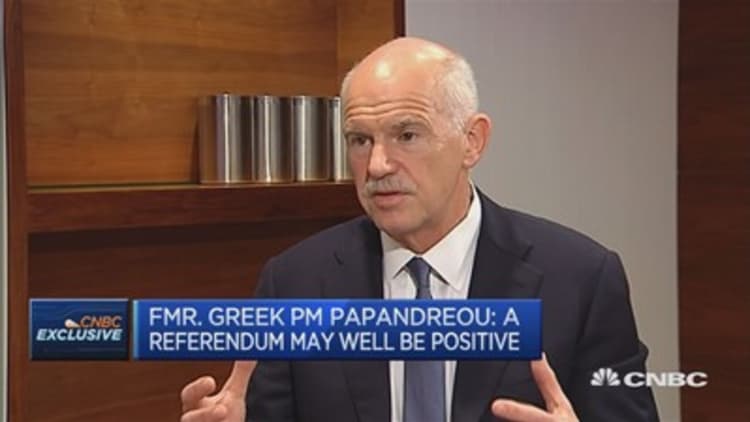
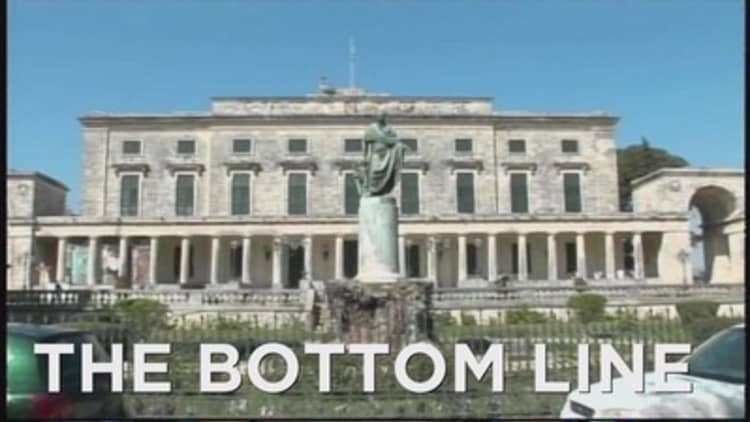
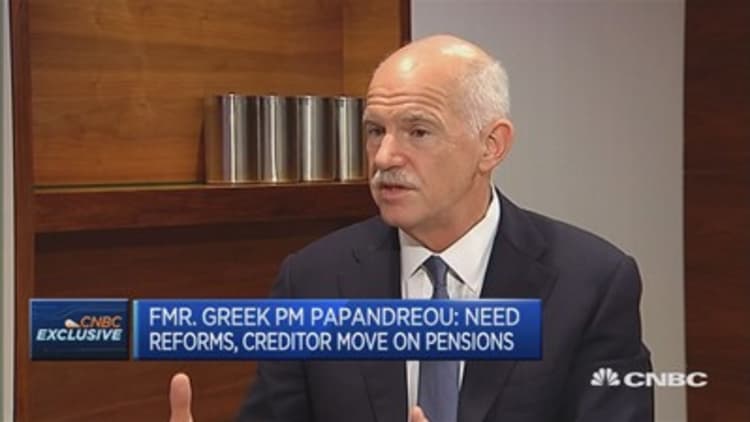
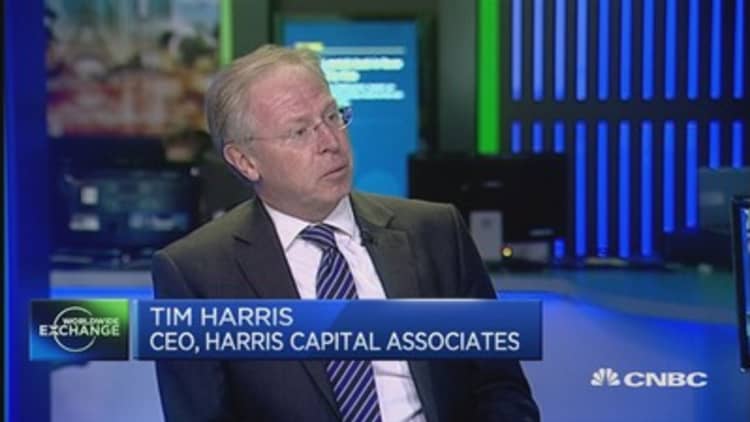
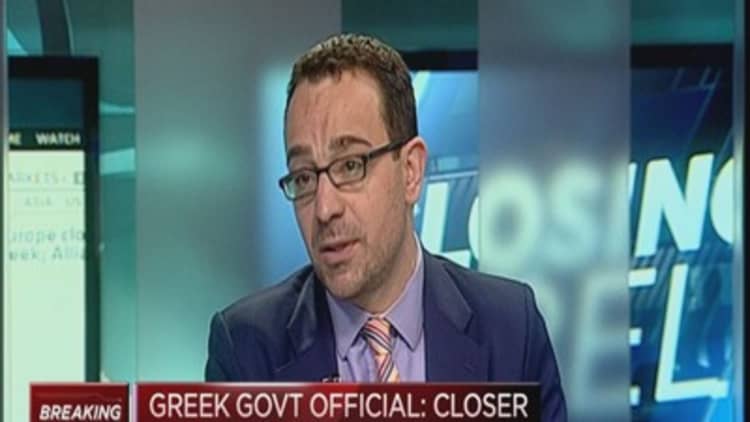
Greece's Prime Minister Alexis Tsipras is to hold an emergency government meeting at midday London time to discuss the failure of the latest round of discussions with its creditors to help stop the country tumbling into bankruptcy.
Tsipras will meet with Deputy Prime Minister Yannis Dragasakis, State Minister Nikos Pappas and Alternative Foreign Minister for International Economic Relations Euclid Tsakalotos in the wake of the breakdown of negotiations in Brussels at the weekend, a government spokesman confirmed.
On Monday, European stocks fell as talks between Greece and creditors fell apart over the weekend.
Talks between Greece and its creditors over the weekend yet again failed to resolve the impasse over reforms, with European officials blaming Greece for failing to offer concessions in return for a final tranche of desperately-needed financial aid.
Former Greek Prime Minister, George Papandreou, who led the country from 2009- 2011 and oversaw Greece's first request for an international bailout in 2010, told CNBC that the situation was a mess.
"It seems again very close to the brink of a disaster and it will be a real sin (if talks fail)," he told CNBC Friday.
The Greek people had sacrificed a lot over the last five years and battled high unemployment, he said, in order to "remain in the euro and at some point be able to access the markets and then get on a path of growth."
Read MoreGreek talks incrisis after IMF leaves table
"So I think we really need out of both sides to climb down from their high horses and really work on a compromise, on an honorable compromise, to find a solution and move forward in a sustainable way," Papandreou added.
Greece received its first international bailout -- worth 110 billion euros -- in 2010, but the aid was accompanied by unpopular austerity measures. As his popularity plummeted, Papandreou called for a referendum on the terms of the bailout deal but the vote did not come about. Political turmoil ensued and he resigned in 2011.
In the meantime, Greece has received a second bailout (taking its aid to a total of 240 billion euros) which has caused seen its current leaders collide with the country's lenders over reforms.
Read MoreAs clock ticks, Greece risks running out of friends
Current Greek Prime Minister, Alexis Tsipras, who leads the leftwing Syriza party, has rejected the austerity measures demanded by the bodies overseeing the country's bailout programs -- the European Commission, International Monetary Fund and European Central Bank – leading to the current impasse.
Papandreou said that now, both sides needed to show more flexibility.
"We should be able to have…the creditors' side say: 'OK, you've done your fiscal consolidation, so we're not going to ask for more cuts'… But on the other hand, (the Greek government) has to say: 'We are ready to continue deep reforms to make Greece sustainable'," he said.
Without more aid, Greece could default on its debt obligations at the end of June and there are fears that it could eventually leave the euro zone.
Greek Finance Minister, Yanis Varoufakis, ruled out a "Grexit" -- Greece leaving the euro zone -- in an interview with a German newspaper Bild published Monday, but said that Germany needed to play a bigger part in talks.
The only way Greece would be able to repay its debts is if there is a restructuring, he wrote, and a deal could be possible if German Chancellor Angela Merkel took part in the talks, Reuters reported.
Read MoreWhat would a Greek default look like?
Papandreou said he believed a "Grexit" would be a big mistake and said that a deal would be agreed upon.
"Over 70 percent (of the Greek people) are in favor of staying in the euro. They did not give a mandate to for this government to leave the euro or to default. They have sometimes applauded a stronger negotiating position (with lenders), but in the end they do want a deal," he said.
"So I believe it is in the interest both of our country, but also of even the Prime Minister, to go beyond the narrow confines of his own party and move forward to find an honorable compromise. And I hope that it happens."
- By CNBC's Holly Ellyatt, follow her on Twitter @HollyEllyatt. Follow us on Twitter: @CNBCWorld



